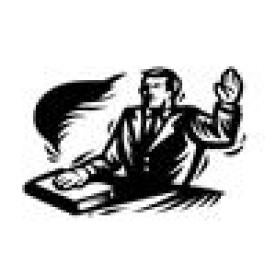“Dr. Expert, here is our theory for the case. Can you tell me if it’s possible?”
Anyone see anything wrong with this? Can the lawyer be the one to come up with the theory for the case? Of course. They do it all the time. All jokes aside, it isn’t automatically a bad idea just because a lawyer devised it. You can read enough murder mysteries that, even without a degree in criminal psychology, you start becoming good at determining “Who done it.” But, should lawyers run their theory by their experts? Once again, of course! Particularly if they have any desire for it to be admitted at trial. But whether or not their theory will pass muster under Daubert will depend not on its possibility but, rather, its plausibility.
So, what is the real problem with the request above? The lawyer has come up with a theory. It may be a solid, reliable idea, and he has asked his expert to test it. Or has he? This is the issue that came before the Southern District of New York on a recent motion to exclude the defendants’ causation expert in the ongoing Mirena IUD products liability litigation. What did the defendants ask of their expert in the matter? “[T]o offer an opinion as to the potential mechanisms of secondary perforation of Mirena IUDs.” How did the judge view this? A request to prove something is merely possible as opposed to plausible. Specifically, Judge Seibel found the expert was “given a conclusion by lawyers and worked backwards to hypothesize a mechanism by which it might occur.” Ouch.
“Might” is never a word you want to use in front of a jury when your standard is “more likely than not.” The problem with defense counsel’s directive in this matter was the request for something that could have occurred, as opposed to what likely did occur. Without sufficient testing to prove the theory, this was akin to “reverse-engineering a theory to fit the desired outcome”—a methodology the Judge in the Mirena matter found failed to meet the necessary scientific benchmark for admissibility under Daubert.
We have touched on a similar matter before, in a fun My Cousin Vinny spin on how much involvement a lawyer should have in the preparation of an expert’s report. This is another example of how the potential admissibility, strength, or efficacy of an expert’s opinion can be weakened by attorney input. Theories are great! They’re the backbone of scientific creativity and discovery. But in the legal realm, they are only useful after they have been thoroughly tested with reliable and proven methodology. Be sure when you run your theory by your expert, that you do not ask merely for an affirmation that the theory is possible, but, rather whether it is scientifically plausible.
The one thing you do not want opposing counsel’s expert to say when addressing your expert’s opinion on the stand—with a smirk and a chuckle—is: “Well, anything’s possible.” It’s like the determined nerd who keeps asking the head cheerleader out on a date. After the fiftieth decline, she finally says “Not tonight,” and he says, “So you’re telling me there’s a chance!” You don’t want a chance. You want a proven likelihood. Craft your request to your expert accordingly. The request above should read:
“Dr. Expert, here is our theory for the case. Can you tell me to a reasonable degree of scientific certainty if this is what likely occurred?”
That is an opinion that will serve you at trial. It’s easy to get passionate about a case. Please, please, tell me there’s a chance! Passion coupled with plausibility, however, is far more persuasive.




 />i
/>i

